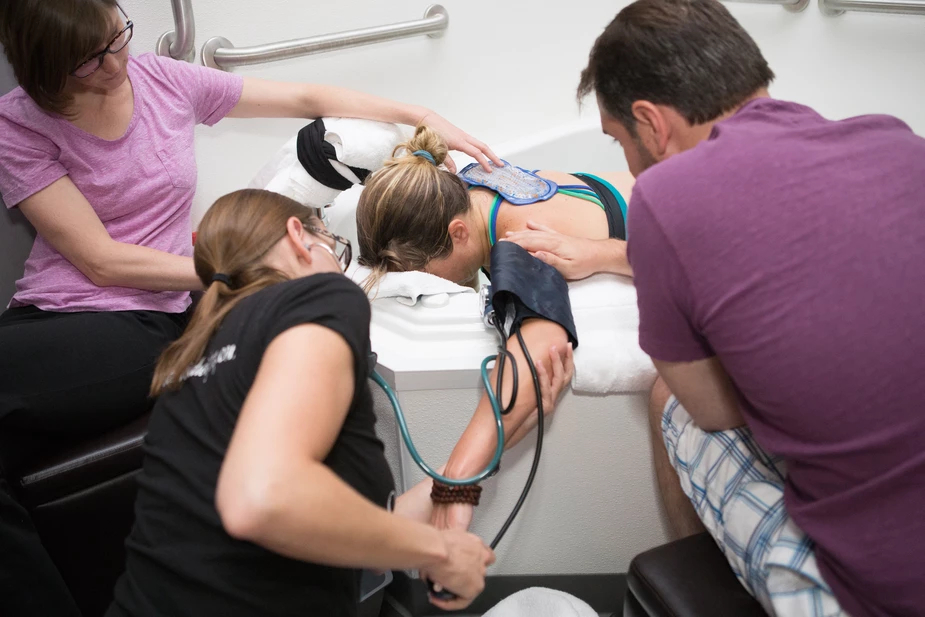(Photo credit: Willow Grove Photography)
We get a lot of questions about our usual practice with cervical exams at the end of pregnancy and during labor.
The end of pregnancy cervical exam question tends to be “Are you going to start checking me at X weeks?”
Answer: We do not do routine cervical exams at the end of pregnancy.
1. There is no evidence to support that practice
2. It tells us nothing about when you will go into labor (The cervix is not a crystal ball!)
3. The only reason to do “routine” cervical exams is to plan for induction of labor, and we do not routinely induce our clients
– As a client, you may ask for a cervical exam, and we are happy to do the exam
– After 41 weeks of pregnancy, we talk more about considerations for cervical exams in conjunction with interventions that may be used to help stimulate labor. This is considered, as always, using a shared decision-making framework.
The labor cervical exam question tends to be “How often will you check my cervix in labor?”
Answer: This is a harder question to answer because it depends!
Some clients will go through their entire pregnancy, labor and birth without a single cervical exam.
Often times, we will recommend a cervical exam at admission to the birth center – this can be both determination that it is time for admission and also for baseline admission assessment.
Following the initial admission exam, any successive exam comes with questions. Why would an exam be helpful at this time? What decisions need to be made with this information?
– An exam could be considered if it seems like labor is not progressing as expected
– An exam could be considered for reassurance that labor is progressing
– An exam would be recommended if there is concern for the fetal heart rate
– An exam would be recommended if pushing without outward signs that the baby is moving down
There can be a multitude of reasons to consider a cervical exam, but they should not be done without purpose. We also want to consider if the bag of water is broken, as we know repeated exams following rupture may increase risk for infection.
Always remember that this is your body, your baby, your pregnancy, and birth. If your provider asks to do a cervical exam, ask “Why? What information is needed? What do you anticipate doing or recommending with that information?”



